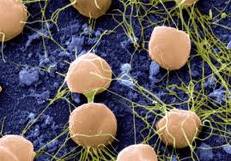Superbug Now in U.S., CDC Says
Officials of the Centers for Disease Control and Prevention (CDC) announced on Tuesday that three cases of infection by a new drug-resistant microbe from India have been reported in the United States.
New Delhi metallo-beta-lactamase NDM-1, is the bacterium that is closely related to another bacterium that has been in the United States for many years now. Both bacteria are resistant to a family of antibiotics called carbapenems which include penicillin and ampicillin.
“NDM-1 is a newly recognized mechanism of resistance that allows certain bacteria to become resistant to certain antibiotics,” said Dr. Alexander J. Kallen, a medical epidemiologist and outbreak response coordinator at the Division of Health Care Quality Promotion of the CDC.
“Unfortunately, carbapenem resistance is not uncommon even in the United States,” Kallen said. “We have our homegrown version of NDM-1 that has been recognized for quite a few years.”
The resistant bacteria, dubbed as carbapenem-resistant carbapenemase (KPC), are typically transmitted in hospitals and nursing homes, and spread through touching contaminated hands and surfaces.
The CDC noted that there have been no deaths from the infections so far, but warns the public that this new strain of bacterium poses a serious threat.
“What is new in NDM-1 is a new mechanism that produces a strain [of bacterium] that looks the same as KPC,” Kallen added.
The new type of germ is said to have originated from India, and later spread to Pakistan, Europe, and Canada. There were reports of casualties but Kallen did not cite any figures.
Three cases from Massachusetts, California, and Illinois have been reported to the CDC, and none of the infections resulted to deaths.
